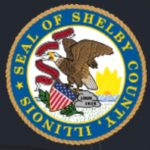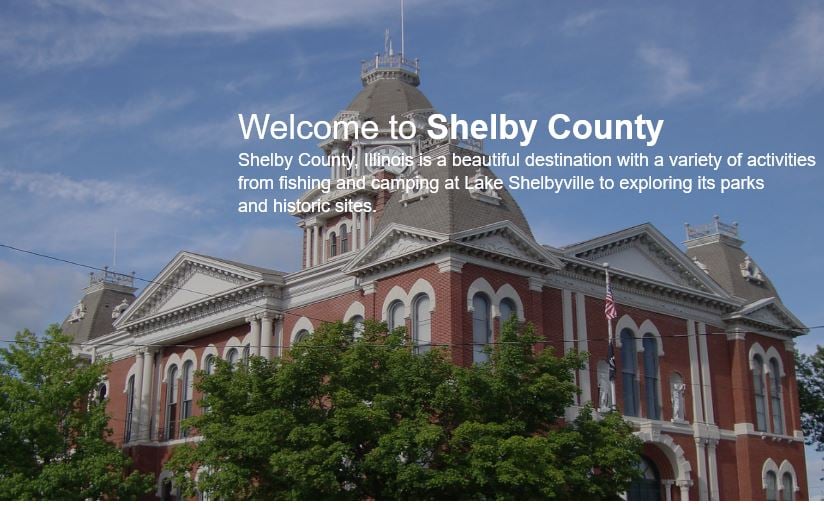Shelby Co. (ECWd) –
House Bill 1076 – Amendment to Leasing of County Property
During the meeting, Carol Cole and Tad Mayhall were having a sidebar discussion in what appeared to be about the legislation that was passed. Anyone not familiar with all the history of this law and its ties to case law could easily be misled by simply reading the law. Case law and our Constitution play a major role pertaining to the application of the law. A point Cole has yet to grasp during these past 2 years of pushing an agenda rather than simply following the law as written.
Now that language pushed by the former State’s Attorney has been stripped from the bill and appropriate language has been added on matters of real concern, the same problem still exists.
What many fail to understand, is HB 1076 does not change the county’s right to lease its property. It has always had that power. What many are missing is the fact any leased property must conform to the state constitutional requirements, specifically Article VIII Section 1 which deals with the use of public property. It must be for a public purpose. In any lease of any county property, to any entity, public or private, the use of the property must be for a public purpose, not a private purpose. Just making money from the lease does not meet the public purpose criteria as some continue to falsely claim.
A simple example of a public purpose being met in a lease of government property is the Department of Natural Resources and its leasing of state-owned farm grounds. It meets the public purpose because the lease spells out that the farmer is required to leave a significant portion of the crop in the ground for wildlife conservation and pay the property tax among other things. The public has access to that ground for hunting purposes as well, thus the limited private gain to the farmer is considered incidental to the primary purpose of DNR, wildlife conservation. Similar comparisons are found in case law.
Public purpose is nothing new to Shelby County.
Allan Lolie is an associate judge on the Fourth Judicial Circuit Court of Illinois. Allan Lolie was the former Shelby County State’s Attorney who asked the Attorney General for an opinion regarding the Shelby County Rescue Squad and their use of public property to recover private property from the lake. The letter from the Attorney General can be downloaded at this link.
“The constitutional limitation on the use of public property is not avoided merely because a unit of government may be compensated for the private use of its property. Redmond, 86 Ill. 2d at 382; Yakley v. Johnson, 295 Ill. App. 77, 81 ( 1938). If the principal purpose and objective of a governmental activity is public in nature, it does not matter that there will be an incidental benefit to private interests. People ex rel. City of Salem v. McMackin, 53 I11. 2d 347, 355 ( 1972). Conversely, if the primary benefit of the use of public funds or property is private, an incidental benefit to the public will not justify a use or expenditure. The issue, therefore, is whether the use of county property by the rescue squad to recover personal items for a fee is a purely private matter, or one that would serve ”a proper public purpose.”
The Attorney General confirmed the use of county property to recover private property was not permitted as it is not a public purpose use of the property.
Public purpose is not a defined term when it comes to these matters and the courts have made it clear, each case requires an analysis of the matter to make a determination. When it comes to leasing to a farmer for his own private gain, that use of the land does not meet the public purpose of a county government, the reasons have been analyzed by the Attorney General, and well documented, and it came down to the use of the land being for private purpose rather than public purpose, which violates the State Constitution. Even the Legislator’s Annotated Constitution speaks to the use of the land requirement.
“Several Attorney General’s opinions have addressed leasing of county-owned real estate to other persons or organizations. Those opinions advised that not only must such leases be for adequate consideration to the county (unless the county is authorized by law to make a donation to the lessee), but the use to which the lessee puts the property must itself benefit the public, such as providing space for other units of government or for legislators.”
The change in the law that put tougher restraints on the lease of public property, including farm grounds, does not change the constitutional issue. Only a change in the Constitution would change that, which was discussed in the Senate Committee. In fact, even during the third read of the bill in the Senate, the Chief Sponsor Senator Plummer made it clear:
“Counties and units of local government do need to make sure that whatever agreements they enter into regarding leasing farm ground abides by the Constitution as well.” (Video of the Third read in the Senate)
Part III to follow.
The meeting video is below.








No Comments
Sorry, the comment form is closed at this time.